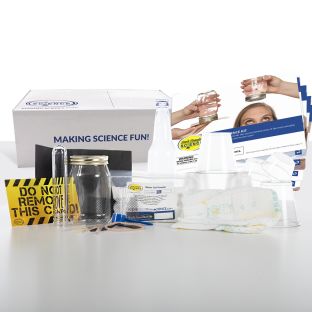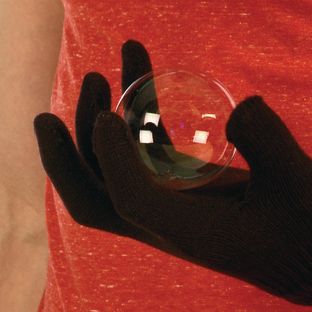STEM Science Kits – Elementary
Popular Elementary STEM Science Kits for Students
Inspire engagement with popular Elementary STEM Science Kits for Students. Our most-purchased Elementary STEM Science Kits for Students are versatile and appropriate in most school environments.
Really Good Stuff’s top Elementary STEM Science Kits for Students enhance experiences for students as well as teachers. Shop our most popular STEM Science Kits for Students for educators.
Elementary STEM Science Kits Products
Top-Rated Elementary STEM Science Kits for Students | 2025 School Year
Get top-rated Elementary STEM Science Kits for Students from Really Good Stuff. Teachers rate these 1 STEM Science Kits for Students with an average of 5 stars, making them the best STEM Science Kits for Students.
Explore these Elementary STEM Science Kits for Students loved by students aged 4 to 11 years-old. Through premium Elementary supplies, STEM Science Kits for Students can help your PreK grade to 7th grade class.
Learn More About Elementary STEM Science Kits for Students
Enhance your Elementary classroom with Really Good Stuff’s STEM Science Kits for Students. Our catalog of 6 high-quality STEM Science Kits for Students start at $12.99 and fit the Elementary classroom. From premium brands like Steve Spangler Science®, these STEM Science Kits for Students meet the needs of Elementary teachers.
Really Good Stuff’s STEM Science Kits for Students for Elementary students work for ages 6 to 10 and for grades 1st to 6th. Teachers match Elementary STEM Science Kits for Students with other STEM Science Kits for Students from the STEM category.
Make Really Good Stuff your top choice when looking for STEM Science Kits for Students for your Elementary classroom.
STEM Science Kits are an invaluable resource in the elementary classroom, sparking curiosity and fostering a love for learning in young minds. Teachers can utilize these kits in numerous ways to enhance their curriculum. For instance, during science lessons, kits focused on life sciences can help illustrate plant growth with hands-on planting activities, while kits centered on engineering principles can guide students through building simple machines. These interactive tools not only make complex concepts more understandable but also align with Next Generation Science Standards (NGSS). Furthermore, incorporating STEM kits into collaborative group projects can enhance cooperative learning and problem-solving skills, preparing students for more advanced scientific inquiry as they progress through their education.
When selecting the right STEM Science Kits for your elementary classroom, keep these three tips in mind. First, ensure that the kits are age-appropriate and match the developmental stage of your students. For instance, kits designed for grades K-2 might focus on basic concepts and simple experiments, while those for grades 3-5 can delve into more intricate challenges. Second, look for kits that offer clear, step-by-step instructions and support materials, such as workbooks or digital resources, to aid in both teaching and learning. Finally, consider the modularity and reusability of the kit; versatile kits that can be used across multiple lessons and for various projects will provide more value and flexibility.
Age and grade levels are critical factors in choosing the right STEM Science Kits. Typically, elementary classrooms cater to children from ages 5 to 11, spanning kindergarten through fifth grade. As such, the complexity and instructional design of the kits must align with these age ranges. Kits for younger children should prioritize safety and simplicity, encouraging observation and basic hands-on skills. In contrast, those for older students can introduce more advanced scientific methods and concepts, such as data collection and hypothesis testing.
When purchasing STEM Science Kits for an elementary classroom, it’s also important to differentiate these needs from those of middle school or high school settings. Younger students benefit from kits that emphasize exploratory learning and fundamental science principles, often with more visual and tactile components. However, kits for older students will demand a deeper focus on critical thinking and specialized knowledge areas. Investing in quality STEM kits that suit an elementary classroom ensures a dynamic and engaging learning environment, laying a strong foundation for ongoing scientific education.
FAQs for Elementary STEM Science Kits for Students
What are the highest rated Elementary STEM Science Kits for Students?
- Steve Spangler Science® Extreme Geyser Tube™ – 1 tube, 1 roll Mentos (5 stars) – $12.99





